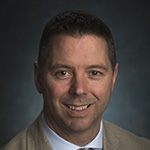The National Cancer Institute estimates that over 1.5 million people in the United States will be diagnosed with cancer and nearly 600,000 will die of their disease. The most common cancers in 2016 are projected to be breast cancer, lung and bronchus cancer, prostate cancer, colon and rectum cancer, bladder cancer, melanoma of the skin, non-Hodgkin lymphoma, thyroid cancer, kidney and renal pelvis cancer, leukemia, endometrial cancer, and pancreatic cancer. Thus far, incremental increases in knowledge have led to improved therapies and outcomes in these various diseases. In order to continue to help cancer patients, we must advance our basic knowledge of carcinogenesis, prevention, treatment, and followup.
The surgeon is perfectly suited to contribute to cancer research as he/she is involved in all aspects of cancer care. However, there exists a shortfall of academic surgical oncologists with the expertise to successfully carry out this type of work in the United States; a new generation of surgical oncologists is needed to efficiently incorporate conventional and molecular treatments of cancer to management of patients at the clinical levels. It is critical that we expand our understanding of how medical management of cancer interfaces with surgical resection and ablation and how the role of pre- and post-operative chemo- and radio-therapy can enhance survival and functional outcomes. Additionally, it is imperative that we continue to emphasize health services research within the field of surgery to redefine best practices in academic surgical oncology through novel investigation of clinical outcomes, quality and cost.
The principal focus of the Research Training Program in Surgical Oncology at UAB is to strengthen academic surgical oncology research by stimulating interested and qualified physician-scientists to pursue the continuum of research, with the ultimate goal of translating discovery into clinical practice. Our program offers well accomplished mentors, individualized training, and the opportunity to obtain core research knowledge and experience. Trainees in our program are required to present and publish their research results, and our goal is to develop surgeons that are competitive for successful careers as academic surgical oncologists.
If you are an MD interested in our program, please peruse the information on this website and we encourage you to apply to our program.
Sincerely,
